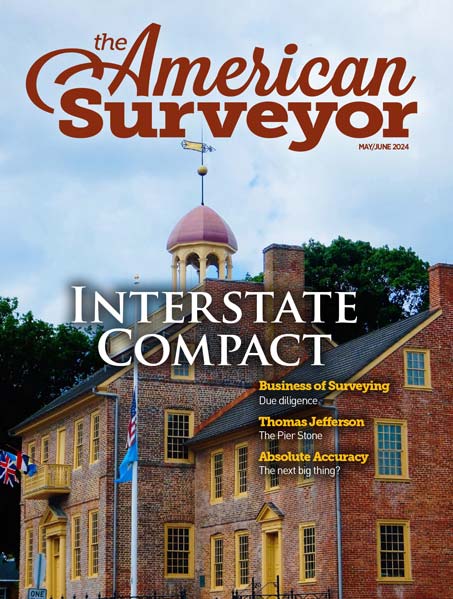Reston, Virginia, March 14, 2011- "There is a critical need to refocus the mission and priorities of the USGS, and to align its budget with this new direction," John Palatiello, Executive Director of MAPPS (www.mapps.org), told a subcommittee of the U.S. House of Representatives March 9.
Palatiello’s testimony before the Subcommittee on Energy and Mineral Resources of the House Committee on Natural Resources entitled "Examine the Spending Priorities and the Missions of the U.S. Geological Survey and the President’s FY 2012 Budget Proposal."
"The USGS operates primarily under authorization provided by the Act of March 3, 1879. It has been decades since Congress last enacted major surveying and mapping legislation for USGS. As a result, surveying and mapping has proliferated among more than 40 federal agencies, resulting in duplication, a lack of coordination, gaps in coverage and the absence of a strategic approach to providing the basic geographic information needed in the 21st century. The need for better coordination of Federal surveying and mapping activities has been well documented," Palatiello said.
"The National Spatial Data Infrastructure (NSDI), established by President Clinton and reaffirmed by President Bush provides a framework for the geographic information America needs today. However, this priority is not reflected in the USGS budget."
"We are surprised and deeply disappointed that funding for NSDI, and the partnerships to facilitate this activity, is proposed to be cut in the President’s FY 2012 budget by $3.5 million," Palatiello said. "This is the last place we should be cutting the USGS budget. A reduction in partnerships will result in more duplication, less coordination, less leveraging of scarce resources," he said, citing USGS’s own analysis that for every dollar in funds appropriated to USGS for NSDI framework data, more than $11 in partnership dollars is leveraged. He also opposed "the proposed decrease in funding for the Federal Geographic Data Committee (FGDC) by $200,000. FGDC is a USGS office that is responsible for Federal coordination."
Concern was also raised about the lack of utilization of the private sector and execution of directives from Congress by USGS, with Palatiello noting "USGS is not coming close to meeting the instruction of Congress established in the FY 1996 Interior Appropriations Act".
"On the bright side," Palatiello said, "we are pleased the budget request includes an increase, or reallocation, of $48 million to support the current and future mission of the National Land Imaging Program, principally through LANDSAT. The moderate resolution data provided by LANDSAT does not compete with the private sector and is an appropriate government investment. It provides for data that is primarily used in research and scientific applications, much of it funded by the government, which complements higher resolution satellite and airborne capabilities available from the private sector. This funding by the Obama Administration continues implementation of the ‘Future of Land Imaging’ program initiated in the Bush Administration. We support this bipartisan program. MAPPS supports the increase, or reallocation, of $48 million to support the NLIP, principally through LANDSAT. The bipartisan program provides government funding for satellites that will ensures data continuity, which compliments higher resolution satellite and airborne capabilities from the private sector."
"The USGS was once the envy of the world for its leadership in the mapping and geographic information field," Palatiello said. "We look forward to working with the Subcommittee on this important and long-overdue review and reform of USGS’s mapping and geospatial activities so it can once again be a leader."
Joining Palatiello as public witnesses at the hearing was Dr. Richard Aster of the Seismological Society of America, Dr. Jonathan G. Price, on behalf of the Association of American State Geologists, and Dr. Craig M. Schiffries, Geological Society of America. Each of the witnesses urged Congress to reprioritize funding for USGS from what has been proposed in the President’s budget request.
Palatiello’s full testimony and the archived webcast of the hearing can be viewed at http://naturalresources.house.gov/Calendar/EventSingle.aspx?EventID=226891.
About MAPPS
Formed in 1982, MAPPS is the only national association exclusively comprised of private firms in the remote sensing, spatial data and geographic information systems field in the United States. The MAPPS membership spans the entire spectrum of the geospatial community, including Member Firms engaged in satellite and airborne remote sensing, surveying, photogrammetry, aerial photography, LIDAR, hydrography, bathymetry, charting, aerial and satellite image processing, GPS, and GIS data collection and conversion services. MAPPS also includes Associate Member Firms, which are companies that provide hardware, software, products and services to the geospatial profession in the United States and other firms from around the world. Independent Consultant Members are sole proprietors engaged in consulting in or to the geospatial profession, or provides a consulting service of interest to the geospatial profession. MAPPS provides its 160+ member firms opportunities for networking and developing business-to-business relationships, information sharing, education, public policy advocacy, market growth, and professional development and image enhancement. For more information on MAPPS, please visit www.MAPPS.org.
